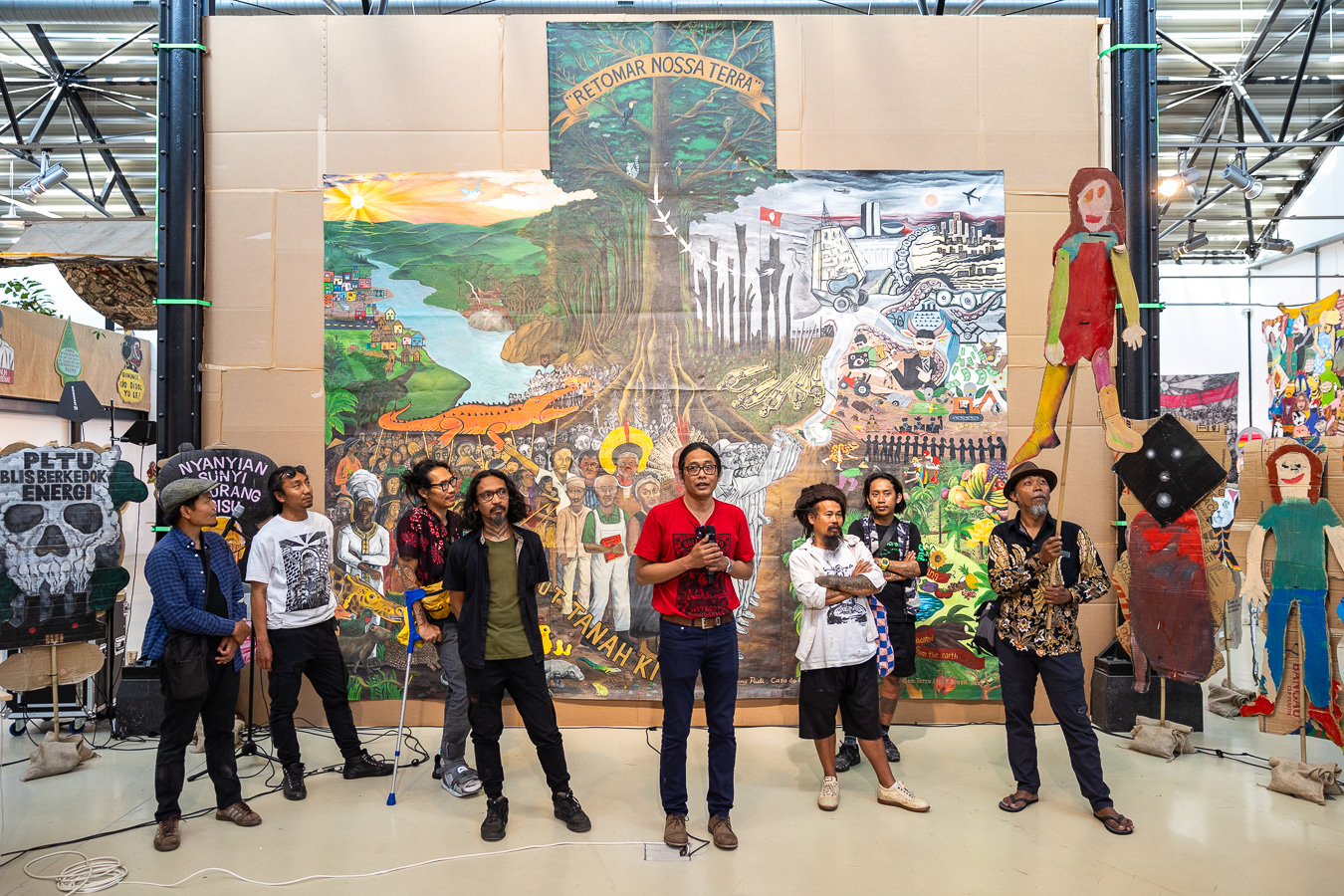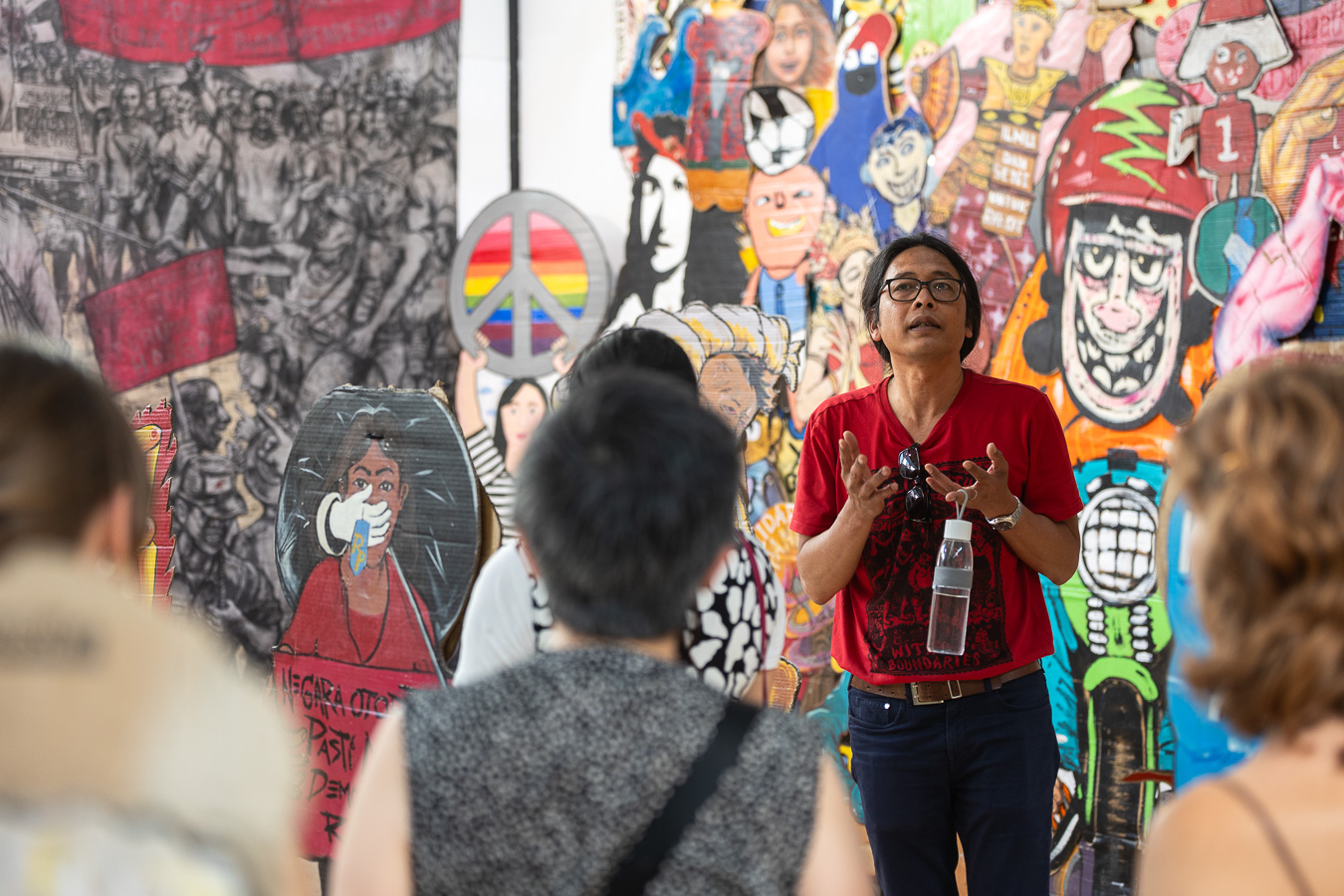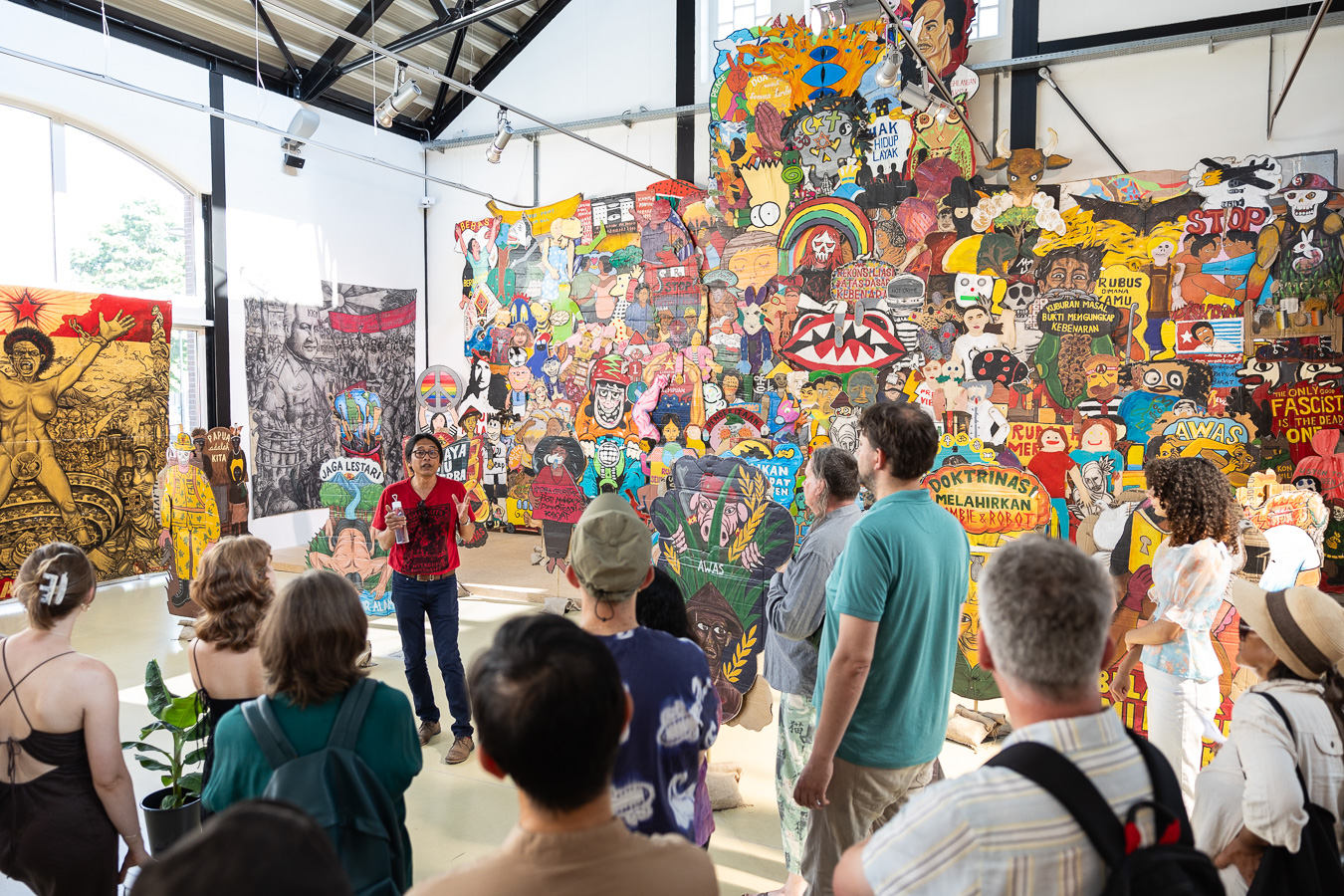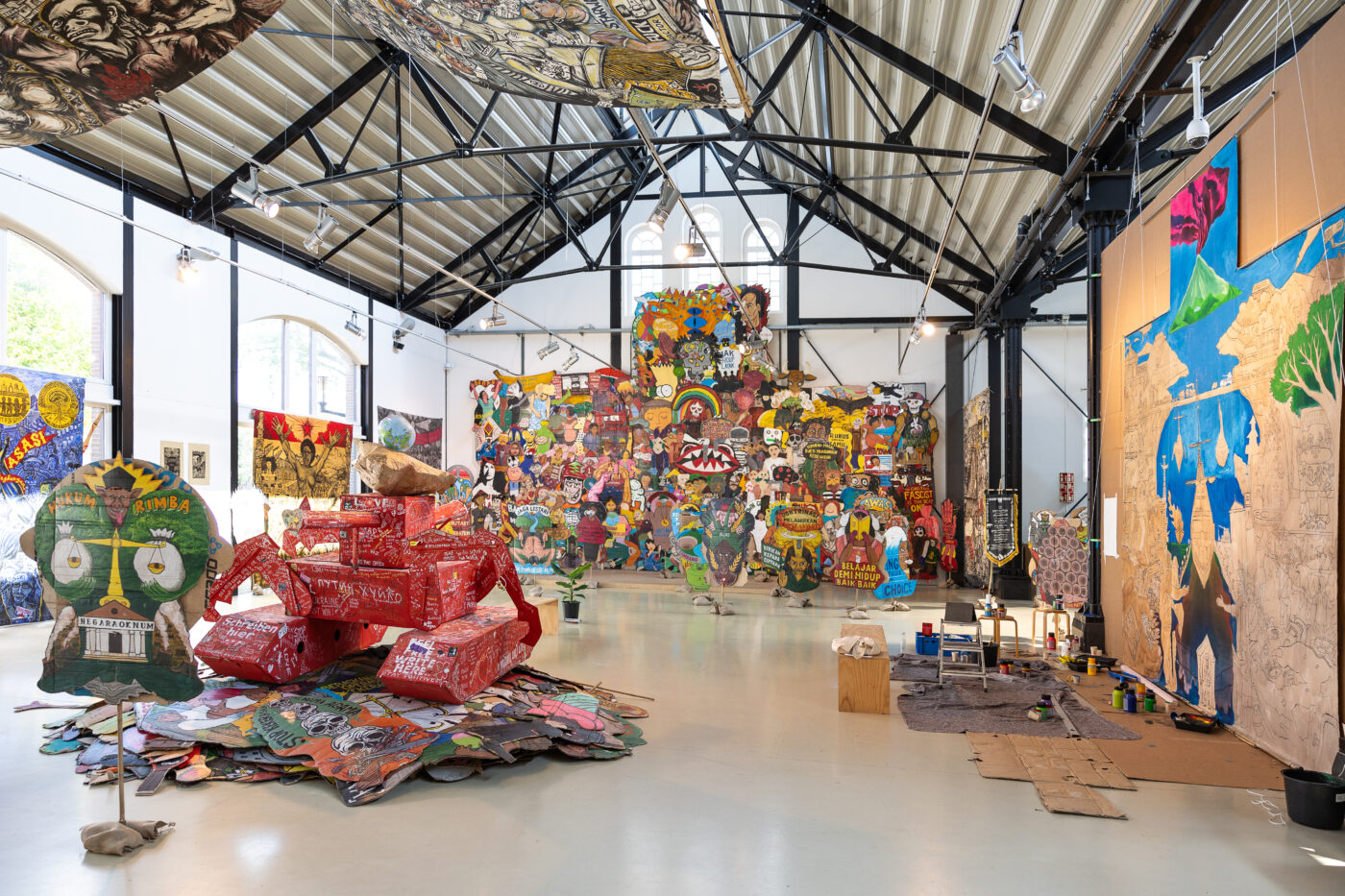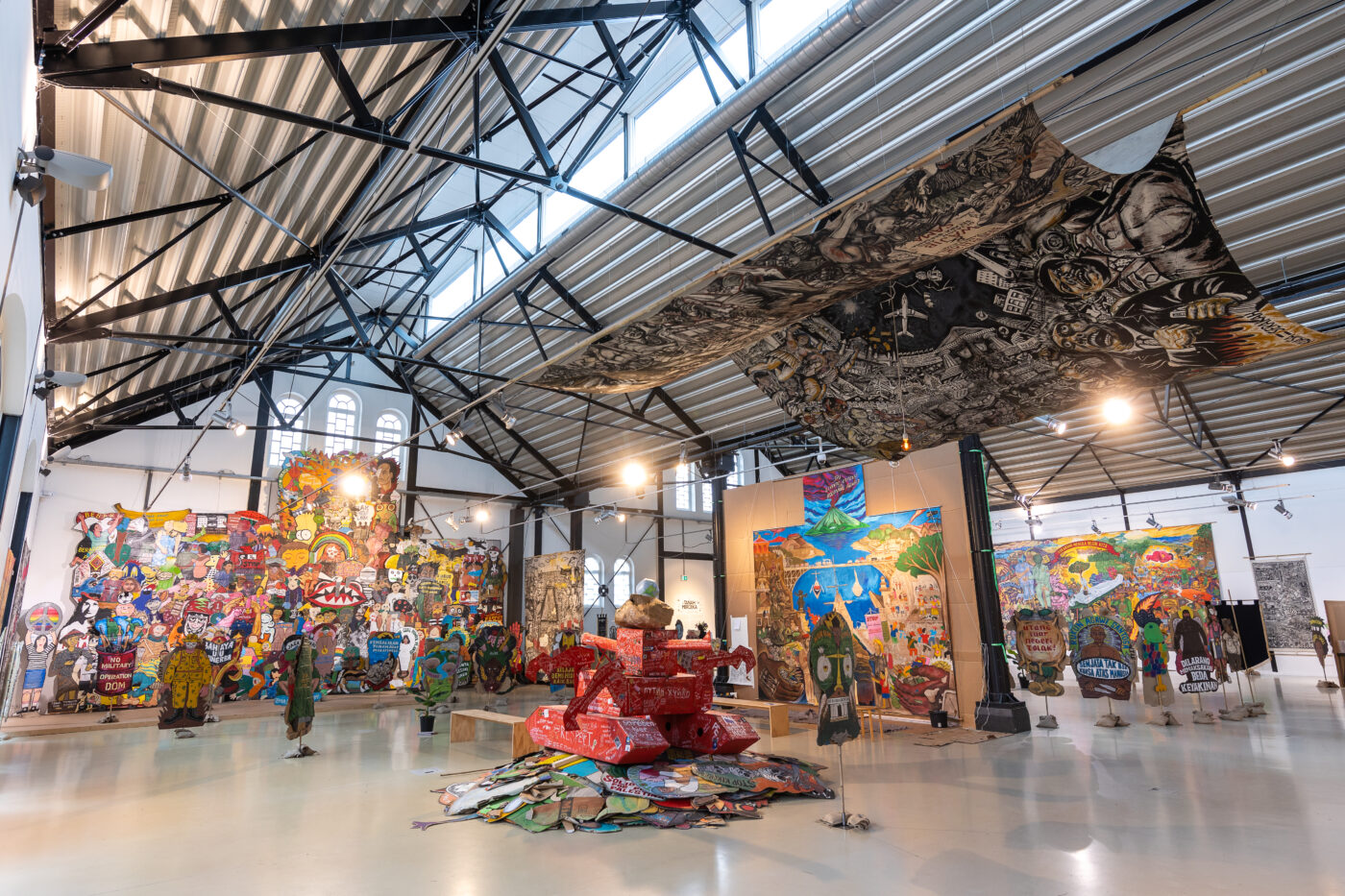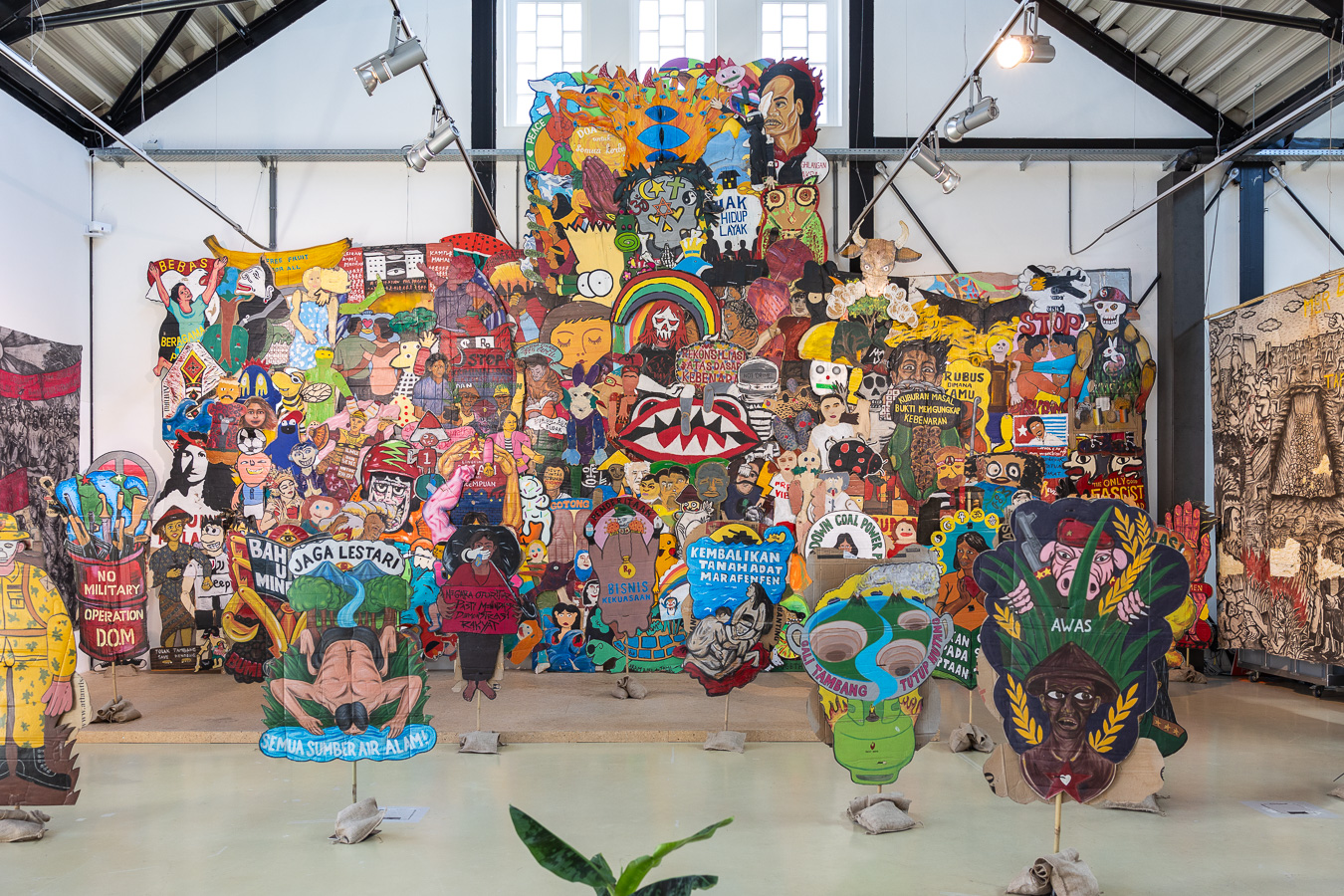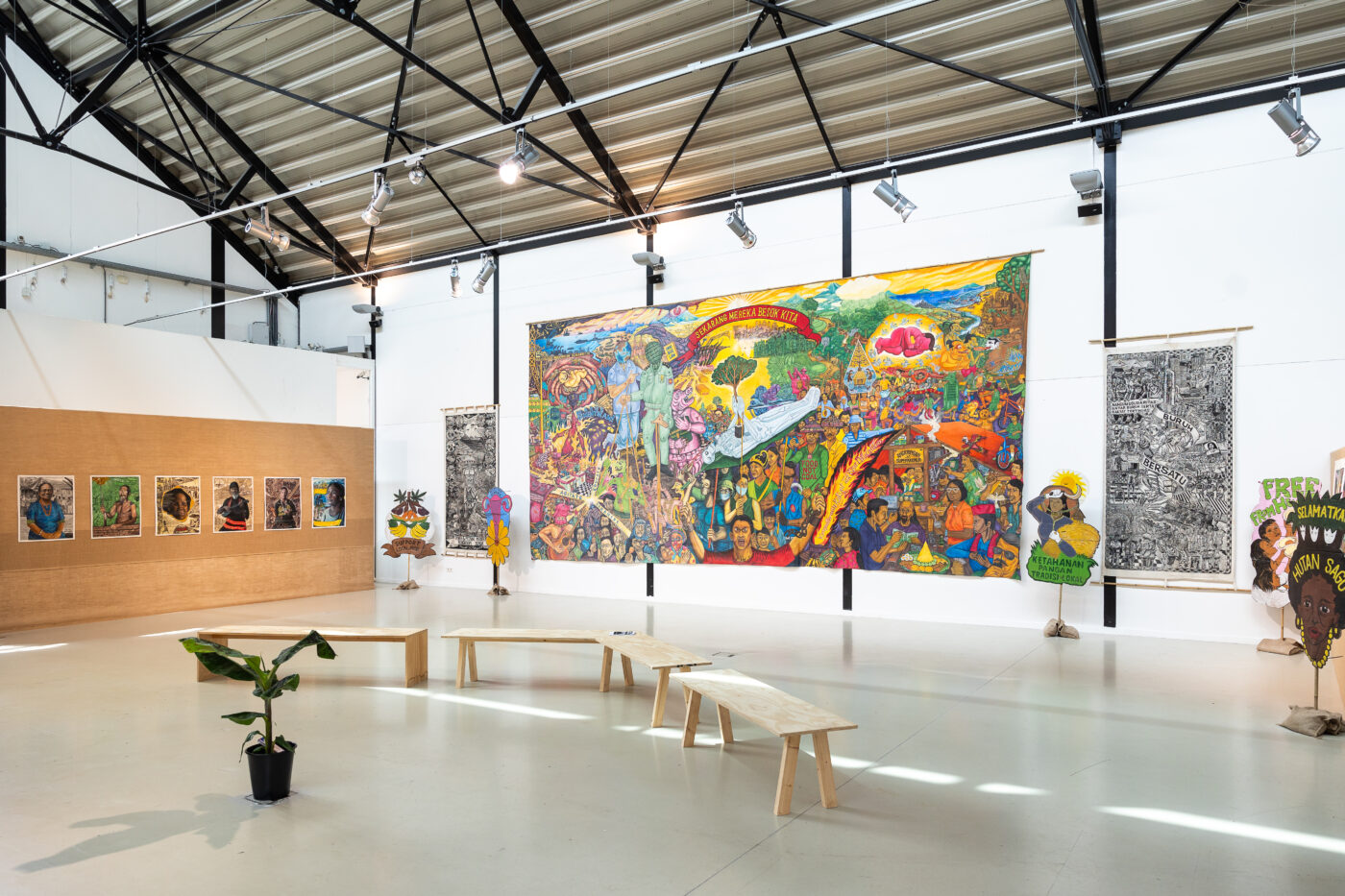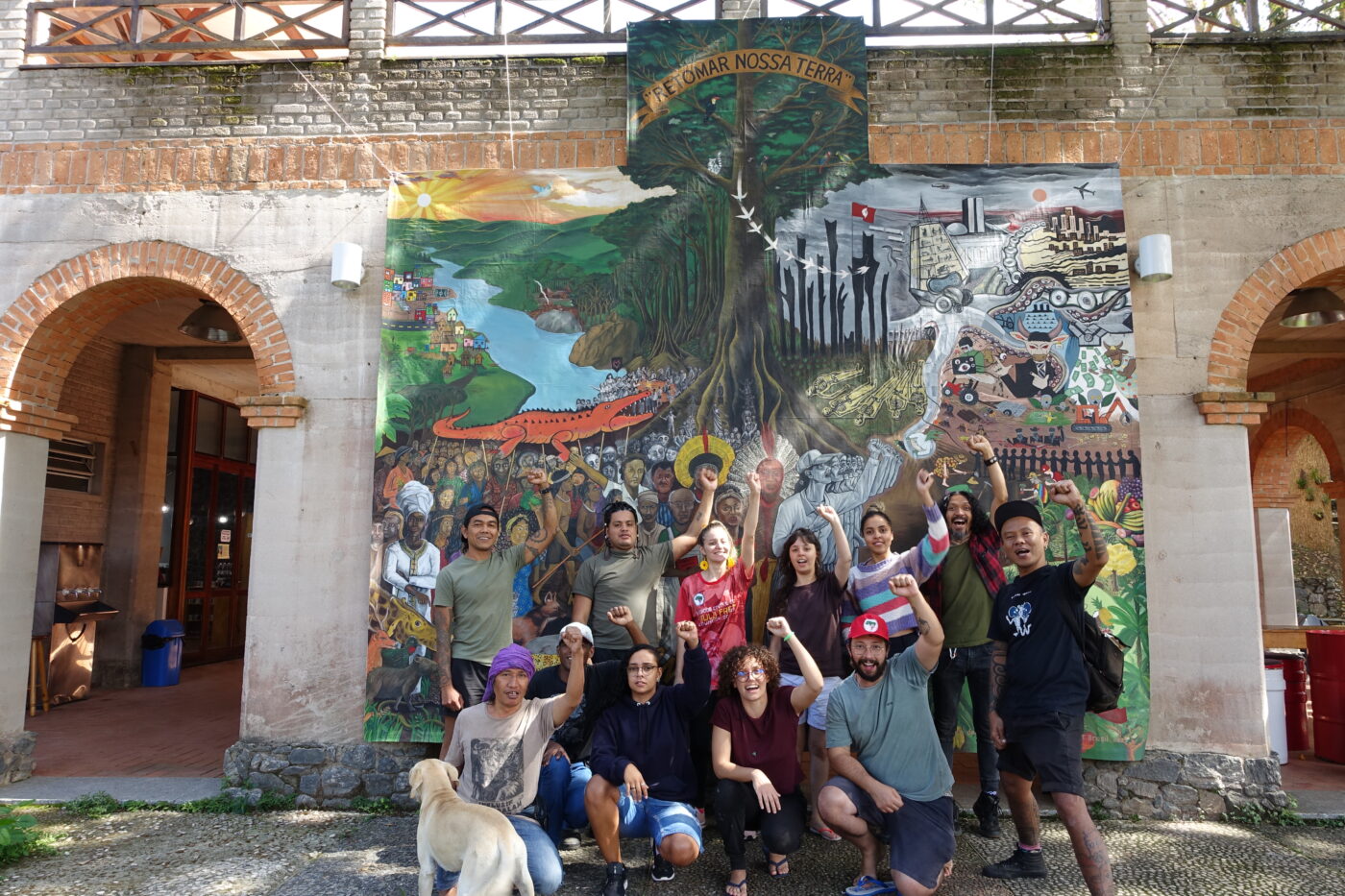Taring Padi
Taring Padi was founded in Yogyakarta, Indonesia in 1998 by a group of progressive art students and activists in response to the Indonesian socio-political upheavals during the reformation era and the fall of Suharto. Consequently, Taring Padi’s artistic practice is always part of and contextualises within socio-political and cultural action and solidarity with a wide range of communities and social groups. Taring Padi’s works and solidarity actions are manifested in collective works in the form of woodcut posters, large-size banners, rontek, cardboard puppets, music, carnival and other art actions. Taring Padi often run workshops at their studio and undertake collaborative projects with communities and national and international art and political groups.
In December 1998, Taring Padi was established in the office of the Indonesian Legal Aid Foundation (YLBHI) in Yogyakarta, Indonesia, which was the operational hub where activists gathered to organise demonstrations and press conferences or seek help for friends who were detained during the Suharto dictatorship. This activist ecosystem still supports Taring Padi’s radical art practice. It also enables new members to grow in an atmosphere where art and the praxis of life are interconnected, thus securing Taring Padi’s inclusive and non-hierarchical organisational structure.
With equity, diversity, and openness being paramount values, the collective embraces old and new members from different backgrounds and age groups whose multiperspectivism not only feeds and renews Taring Padi’s radical art practice, but also prevents the development of any form of exclusivity. Such an attitude is reflected in the change of the collective’s official name from ‘Lembaga Budaya Kerakyatan/LBK Taring Padi’ / The Institute of People Oriented Culture of Taring Padi to ‘Kolektif Pekerja Seni Taring Padi’ / The Collective of Art Workers Taring Padi. The former prescribed an orthodox, old-school left organisation, which required a rigid organisational discipline; the latter reflects the evolvement of the collective’s connective principle, which merges ideology and camaraderie in utilising art and activism as tools for political action and education. There is no guidance on how individual styles may be applied to collective works. There is only shared understanding and respect for Taring Padi’s identity, character, and mission. Artistic matters are addressed in an ‘organic’ manner: once the topic, theme, approach, general compositional structure, and text are agreed upon, the execution rests, carte blanche, upon the hands of individual members, who may often invite their friends and acquaintances to participate. Visual details are born out of creative dialogue, debates, or banter while working in situ. This process exemplifies Taring Padi’s principle of learning and working together.
Political art is often considered a reflection of social relations. In volatile social situations, where violence, exploitation, and censorship are part of daily reality, art practice tends to depart from traditional values and canons; it becomes part of history in the making, actively affecting societal change. The radicalisation of Taring Padi’s artistic practice was part and parcel of social and political upheavals in Indonesia in 1998 that brought down the 32-year-long military dictatorship of Suharto. Taring Padi produced woodcut posters, cardboard puppets, and large-scale banners for street protests, which became political tools in its involvement in the 1998 Indonesian popular movement.
In 2011 Taring Padi presented the publication Taring Padi: Art Smashing Tyranny, Taring Padi: Seni Membongkar Tirani. “This book is a retrospective publication of the work of a distinguished artist collective, the Institute of People Oriented Culture of Taring Padi. Their collective body of work is divided here into thirteen socially engaged themes, ranging from anti-militarism, corruption, anti-neoliberalism, and workers and peasants’ movements, to women’s liberation and environmental issues, with an accompanying text anchoring each theme. Through these thematic categories and introductory texts, this book documents the reactions of radical artists like the founders of Taring Padi to the social and political changes in Indonesia since the Reformasi (the reformation era) began in 1998. Continuing unabated to the present, these reactions have taken the form of collective works of art that are progressive, inclusive and militant.” – from the Introduction by Alexander Supartono
In the summer of 2022, Taring Padi participated in documenta fifteen and presented 1.000 cardboard puppets made by citizens who took part in the Wayang Kardus Workshops at Framer Framed and other locations. In 2023, Taring Padi completed a residency with Casa do Povo and MST in São Paulo, Brazil. Their collaborative work from the residency was presented in the exhibition Tanah Merdeka (2023) at Framer Framed in Amsterdam.
- Art and Australia - The Work of Justice Taring Padi
- De Groene Amsterdammer - Dancing under the volcano
- Metropolis M - Solidarity and collectivity: Taring Padi in Framer Framed
- NRC - Taring Padi: 'Muslim fundamentalists see us as threat because we are punk'
- Taring Padi
Links
Exhibitions
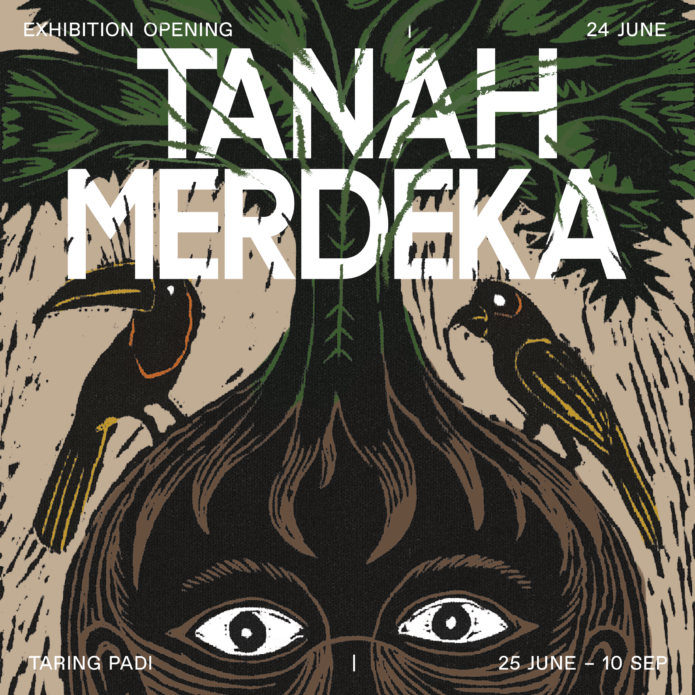
Exhibition: Tanah Merdeka
An exhibition with the Indonesian art & activist collective, Taring Padi, reflecting on the concept of land as the object and site of decolonial struggles.
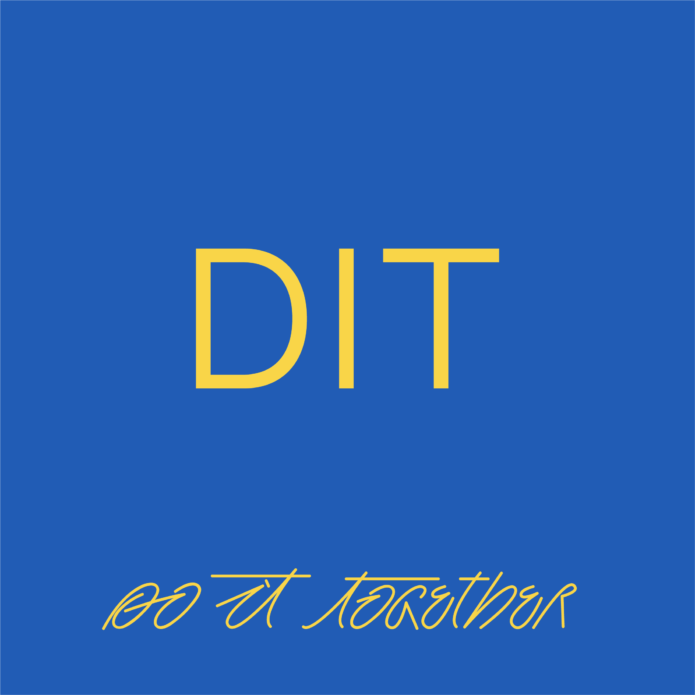
Project: Do It Together - DIT
DIT is a kitchen / a tent / a learning playground / a workshop...................
Agenda
Finissage: Tanah Merdeka
The last day of the exhibition, with a guided tour in Bahasa Indonesia, a performance by Samboleap Tol, and a painting & woodcut printmaking workshop with Taring Padi members
Roundtable Conversation: Tanah Merdeka
Roundtable conversation with researchers and curators from different art museums and institutions within the context of Taring Padi's exhibition, Tanah Merdeka.
Opening: Tanah Merdeka
Opening of the exhibition Tanah Merdeka with works by the Indonesian art collective Taring Padi and collaborators.
Symposium: (un)Common Grounds - Reflecting on documenta fifteen
A two-day hybrid symposium co-organised by Framer Framed, Akademie van Kunsten & Van Abbemuseum
Workshop: Wayang Kardus - Struggle and Solidarity with Taring Padi
A two-day workshop by Taring Padi with food, conversations, jamming sessions and the production of cardboard puppets
Magazine
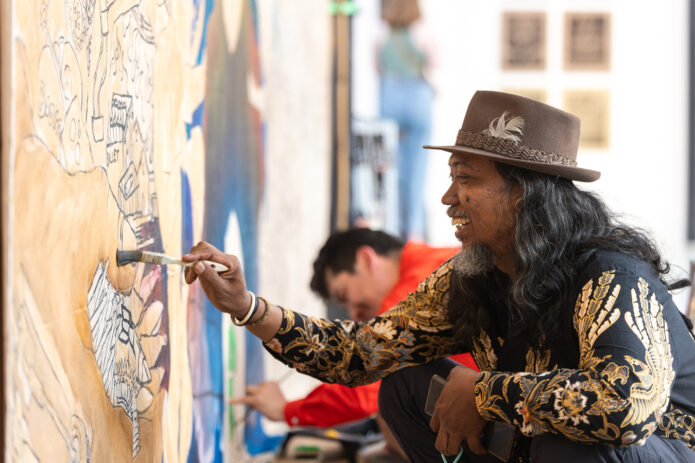

Podcast: Art in Solidarity - Taring Padi’s 25-Year Artistic Evolution
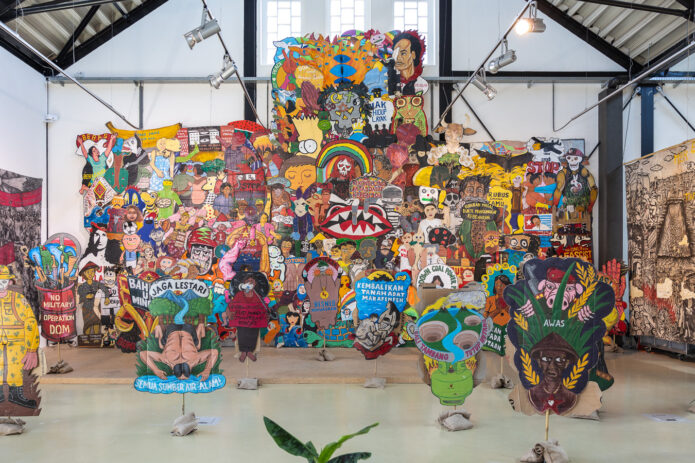
The making of Tanah Merdeka - Dialogue through collaborative practices
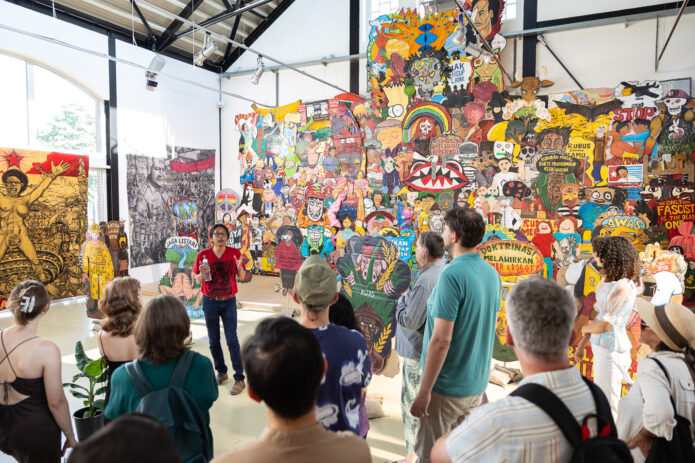
An introduction to the exhibition Tanah Merdeka - by Alexander Supartono
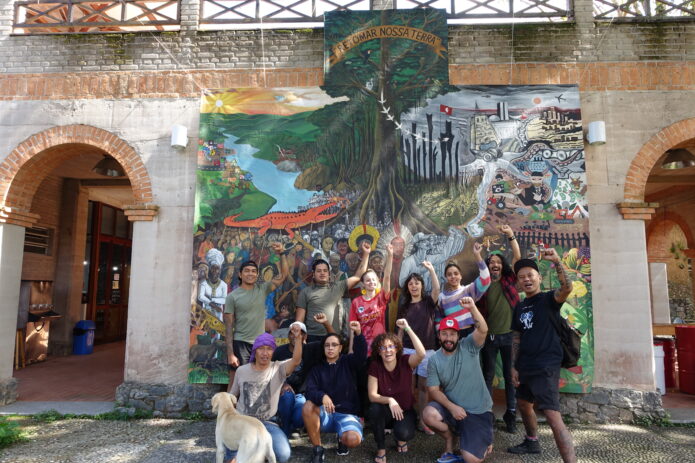
Seeking Restorative Processes by Benjamin Seroussi
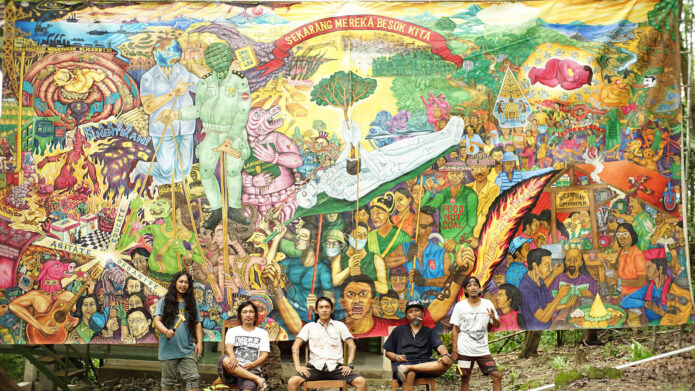
Taring Padi, Solidarity in Public Space - by Kerstin Winking

